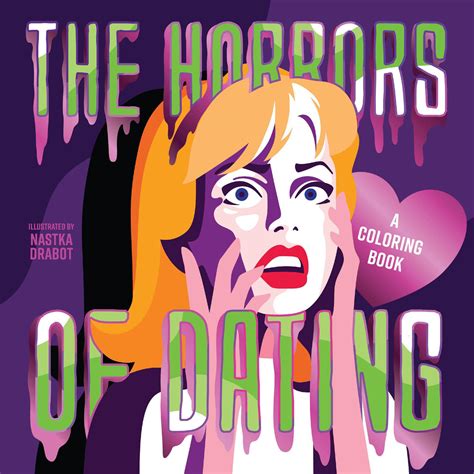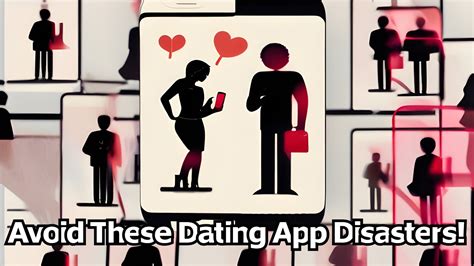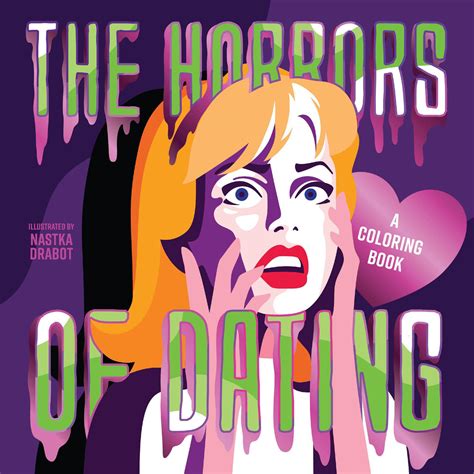
Dating mishaps, ranging from awkward silences to outright offensive behavior, have prompted a debate on whether some particularly egregious dates warrant apologies and even compensation, according to viral social media discussions highlighted by Yahoo Life. Stories shared online detail experiences so unpleasant that they raise questions about basic etiquette and respect in modern dating.
The rise of online dating has undeniably expanded romantic possibilities, but it has also seemingly ushered in a new era of dating disasters. A recent surge in social media posts and online forums features individuals recounting their worst date experiences, with many questioning if apologies are sufficient or if financial compensation should be considered in extreme cases. While the concept might seem radical, the sheer volume and severity of some shared encounters are fueling the discussion.
“Dating should be fun, but these stories… wow,” Yahoo Life reported, summarizing the online sentiment. The article delved into specific instances of dates gone wrong, drawing attention to the growing conversation around accountability and the potential ramifications of inconsiderate dating behavior.
The catalyst for this debate is the viral spread of personal anecdotes detailing dates that went far beyond the typical awkwardness. One individual recounted a date who spent the entire evening talking about themselves without asking a single question about their companion. Another shared a story of a date who openly criticized their appearance throughout the evening. More alarming accounts included instances of dates being dishonest about their age, marital status, or intentions. Some even involved instances where individuals were left with unexpected bills or transportation issues after their dates abruptly ended the encounter.
These stories, often shared anonymously on platforms like Reddit and TikTok, have resonated with many who have experienced similar situations. The collective outrage and shared commiseration have fueled a broader conversation about the expectations and responsibilities inherent in dating. While some argue that bad dates are simply a part of the dating process, others maintain that certain behaviors cross a line and warrant some form of redress.
“It’s one thing to have a boring date, but it’s another to be subjected to rudeness, disrespect, or even deception,” explained one commenter on a popular online forum. “At what point do we say enough is enough and demand better treatment?”
The debate surrounding compensation for bad dates is complex and multifaceted. Proponents argue that in cases of extreme disrespect, emotional distress, or financial loss resulting from a date’s actions, compensation may be warranted. For example, if a date intentionally misrepresents themselves, leading to significant emotional distress for the other party, some argue that financial compensation could help cover therapy costs or other related expenses.
However, opponents of the idea raise concerns about the potential for abuse and the difficulty of quantifying emotional damages. They argue that introducing a legal or financial component into dating could create a litigious environment and discourage people from engaging in romantic relationships. Additionally, they point out the challenges of proving malicious intent or establishing a clear link between a date’s behavior and the emotional distress experienced by the other party.
“Where do you draw the line? A bad conversation? An offensive remark?” questioned one online commentator. “It’s a slippery slope that could lead to frivolous lawsuits and further complicate the already complex world of dating.”
Despite the concerns, the conversation surrounding compensation for bad dates highlights a growing awareness of the importance of respect and accountability in dating. It also reflects a broader societal shift towards holding individuals accountable for their actions and challenging traditional norms that may have previously excused or minimized harmful behavior.
The Yahoo Life article emphasizes the importance of setting boundaries and prioritizing personal safety when navigating the dating world. Experts advise individuals to be cautious when sharing personal information online, to meet in public places for initial dates, and to trust their instincts if they feel uncomfortable or unsafe. They also encourage individuals to communicate their expectations clearly and to address any concerns or red flags early on in the dating process.
“Your safety and well-being should always be your top priority,” emphasized one dating coach interviewed by Yahoo Life. “Don’t be afraid to end a date if you feel uncomfortable or unsafe, and don’t hesitate to seek help if you experience any form of harassment or abuse.”
The discussion surrounding compensation for bad dates is unlikely to lead to widespread legal changes or formal mechanisms for seeking financial redress. However, it serves as a reminder of the importance of treating others with respect and consideration, even in the context of casual dating. It also underscores the need for ongoing conversations about dating etiquette, healthy relationships, and the importance of holding individuals accountable for their actions. The stories shared online, while often humorous or shocking, ultimately reflect a desire for greater empathy, understanding, and respect in the dating world.
The issue is multifaceted, touching upon legal, ethical, and social dimensions of modern dating. The emergence of dating apps has simultaneously increased the number of potential partners and altered the dynamics of initial interactions. The relative anonymity and ease of communication can, unfortunately, also facilitate disrespectful or even harmful behavior.
Some advocates suggest a parallel with consumer protection laws. If a service or product fails to meet a reasonable standard of quality, consumers are often entitled to compensation or a refund. By analogy, if a date promises certain qualities or intentions (either explicitly or implicitly) and then demonstrably fails to deliver, causing harm in the process, a case could be made for some form of recompense.
However, applying consumer protection principles to dating is fraught with challenges. Unlike tangible goods or services, dating involves subjective experiences and emotional investment. Quantifying emotional damage and establishing a causal link between a date’s behavior and the resulting harm would be incredibly difficult.
Moreover, concerns about potential abuse and the chilling effect on dating are legitimate. If individuals fear being sued for a bad date, they may be less likely to take risks or be open to new experiences. This could ultimately stifle the dating scene and make it even more difficult for people to find meaningful connections.
A more practical approach might involve promoting education and awareness about healthy dating practices. Dating apps could implement features that encourage respectful communication and provide resources for reporting abusive behavior. Educational campaigns could emphasize the importance of consent, communication, and empathy in dating relationships.
Ultimately, the goal is to create a dating culture that prioritizes respect, honesty, and accountability. While compensation for bad dates may not be a viable solution, the conversation it sparks can help raise awareness of the issues and promote more responsible dating behavior.
Furthermore, the conversation highlights the power of shared experiences and online communities. By sharing their stories of dating disasters, individuals are able to find validation, support, and a sense of solidarity. These online communities can also serve as a platform for advocating for change and promoting healthier dating practices.
The discussion also brings up questions about the role of dating apps in facilitating or preventing bad dating experiences. Some argue that dating apps should be doing more to vet users and ensure that they are who they say they are. Others suggest that dating apps should implement features that allow users to report abusive behavior and provide feedback on their dates.
However, dating apps are not solely responsible for the behavior of their users. Ultimately, it is up to each individual to act responsibly and respectfully when engaging in online dating. This includes being honest about their intentions, communicating clearly, and respecting the boundaries of others.
The debate surrounding compensation for bad dates is likely to continue, as long as people continue to have negative experiences in the dating world. While there is no easy solution to the problem, the conversation itself is a valuable step towards creating a more respectful and accountable dating culture.
The Yahoo Life article serves as a microcosm of the broader societal conversation around consent, boundaries, and accountability. It reflects a growing awareness of the power dynamics that can exist in relationships, even casual ones, and the importance of challenging traditional norms that may have previously excused or minimized harmful behavior.
In conclusion, the question of whether some dates deserve compensation and apologies is a complex one with no easy answer. While the concept of financial redress may seem radical, the conversation it sparks is a valuable reminder of the importance of respect, honesty, and accountability in dating. By promoting education, awareness, and healthy dating practices, we can create a dating culture that prioritizes the well-being of all individuals involved.
The discussion extends beyond just the act of dating itself. It touches upon broader issues of societal expectations, gender roles, and the influence of media on romantic relationships. The pressure to conform to certain standards of beauty, wealth, or social status can lead individuals to misrepresent themselves or engage in manipulative behavior in order to attract potential partners.
Moreover, the media often portrays unrealistic or idealized versions of romantic relationships, which can create unrealistic expectations and contribute to dissatisfaction in real-life dating experiences. By promoting a more realistic and nuanced understanding of relationships, we can help individuals develop healthier attitudes towards dating and avoid falling into the trap of unrealistic expectations.
The concept of “dating etiquette” is also evolving in the digital age. Traditional rules about who pays for the date or how long to wait before calling are becoming increasingly blurred. This can lead to confusion and misunderstandings, as individuals may have different expectations based on their cultural background, personal values, or past experiences.
Open and honest communication is key to navigating these evolving norms. By clearly communicating their expectations and boundaries, individuals can minimize the risk of misunderstandings and create a more comfortable and respectful dating environment.
The discussion surrounding compensation for bad dates also raises questions about the role of therapy and counseling in helping individuals cope with negative dating experiences. Therapy can provide a safe and supportive space for individuals to process their emotions, develop coping mechanisms, and build healthier relationship patterns.
For individuals who have experienced significant emotional distress as a result of a bad date, therapy can be particularly helpful. A therapist can help them identify any underlying issues that may be contributing to their dating difficulties and develop strategies for building more fulfilling relationships in the future.
The conversation is a complex tapestry woven with threads of personal experience, societal expectations, and evolving norms. While there is no easy solution to the problem of bad dates, the discussion itself is a valuable step towards creating a more respectful, accountable, and ultimately, more fulfilling dating culture for all.
The long-term impact of these online discussions is yet to be seen, but they are undoubtedly shaping the way people think about dating and relationships. By challenging traditional norms and promoting greater awareness of the issues, these conversations have the potential to create a more equitable and respectful dating landscape.
However, it is important to approach these discussions with a critical and nuanced perspective. Not all bad dates are created equal, and it is important to distinguish between minor inconveniences and truly harmful behavior. The goal is not to create a litigious environment where every awkward encounter results in a lawsuit, but rather to promote a culture of respect and accountability that discourages harmful behavior in the first place.
Furthermore, it is important to remember that dating is a two-way street. While it is important to hold others accountable for their actions, it is also important to take responsibility for our own behavior and to treat others with the same respect that we expect in return.
Ultimately, the future of dating depends on our ability to engage in open and honest conversations about the issues and to work together to create a more equitable and respectful dating culture. This requires a willingness to challenge traditional norms, to promote education and awareness, and to hold ourselves and others accountable for our actions.
The Yahoo Life article, while focusing on the sensational aspect of potential compensation, serves as a valuable entry point into a much larger and more complex conversation about the state of modern dating. It is a conversation that is worth having, and one that has the potential to make a positive impact on the lives of many.
The trend also underscores the changing dynamics of power in relationships. Traditionally, men were often expected to take the lead in dating, and women were often expected to be more passive. However, the rise of online dating and the increasing emphasis on gender equality have challenged these traditional roles.
Today, both men and women are expected to be more active participants in the dating process. This includes initiating conversations, expressing their interests, and setting their own boundaries. While this shift has the potential to create more equitable and fulfilling relationships, it can also lead to confusion and uncertainty, as individuals may not be sure of what is expected of them.
Open communication and a willingness to challenge traditional norms are essential for navigating these changing dynamics. By engaging in honest conversations about our expectations and boundaries, we can create a dating culture that is more equitable and respectful for all.
The digital age has undoubtedly transformed the dating landscape, bringing both opportunities and challenges. While online dating has made it easier to connect with potential partners from all over the world, it has also created new avenues for disrespectful or even harmful behavior.
The anonymity and lack of accountability that can characterize online interactions can embolden individuals to engage in behavior that they would never consider in person. This includes lying about their age or appearance, engaging in harassment or abuse, or simply being rude or inconsiderate.
Dating apps have a responsibility to address these issues and to create a safe and respectful environment for their users. This includes implementing features that allow users to report abusive behavior, providing resources for those who have experienced harm, and promoting education and awareness about healthy dating practices.
However, it is also important for individuals to take responsibility for their own safety and well-being when engaging in online dating. This includes being cautious about sharing personal information, meeting in public places for initial dates, and trusting their instincts if they feel uncomfortable or unsafe.
FAQ Section:
- Is it actually possible to get compensation for a bad date?
While the concept of seeking legal compensation for a bad date is gaining traction in online discussions, there are currently no established legal mechanisms in most jurisdictions for pursuing such claims. The focus is more on holding individuals morally accountable through social media call-outs and promoting respectful dating behavior. Proving quantifiable damages, like emotional distress, related directly to a single date, would be extremely challenging in court.
- What types of dating behaviors are considered “bad” enough to warrant an apology, at the very least?
“Bad” dating behaviors can range from mild rudeness, such as monopolizing the conversation or being consistently late, to more serious offenses like dishonesty (misrepresenting oneself), disrespect (making offensive comments), or even dangerous behavior (aggressive or threatening actions). Acts that cause emotional distress, financial loss due to deception, or put the other person in physical danger are generally considered egregious enough to warrant a sincere apology and, in some cases, further action.
- What can I do to protect myself from having a terrible dating experience?
Prioritize your safety and well-being. Meet in public places for initial dates, inform a friend or family member about your plans, and trust your instincts – if something feels off, don’t hesitate to end the date. Be cautious about sharing personal information too quickly, and communicate your boundaries clearly. Research your date beforehand if possible, and consider using reverse image search to verify their photos.
- Are dating apps responsible for the behavior of users on their platforms?
Dating apps have a role to play in fostering a safe and respectful environment. This includes implementing reporting mechanisms for abusive behavior, verifying user profiles (to some extent), and providing educational resources on healthy dating practices. However, ultimately, individuals are responsible for their own actions. Dating apps cannot guarantee that every user will behave appropriately.
- How can I address a bad date situation directly with the person who caused it?
If you feel comfortable doing so, you can directly communicate your concerns to the other person. Choose a calm and respectful tone, and focus on expressing how their actions affected you. Be specific about what behavior you found unacceptable. Be prepared for them to react defensively or dismissively. If you feel unsafe or uncomfortable confronting them directly, it’s best to avoid contact and consider reporting them to the dating app if their behavior violated the platform’s terms of service. Your emotional well-being should always come first.









